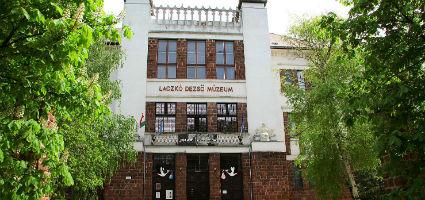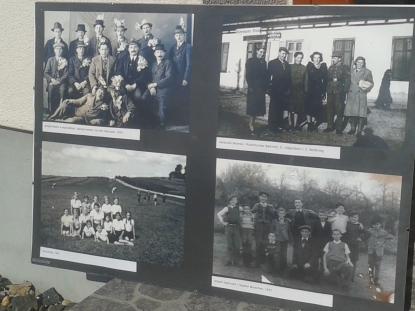2024. May 3. Friday
Dezső Laczkó Museum - Veszprém
 |
Address: 8200, Veszprém Török Ignác u. 7.
Phone number: (88) 789-791
E-mail: titkar@ldm.hu
Opening hours: Thu-Sat 10-18
|
The exhibition has closed for visitors.
2015.03.21. - 2015.04.04.
Do not let the church “The church and the school!”
 (Sándor Reményik)
(Sándor Reményik)
The exhibition at the Laczkó Dezső Museum presents the everyday life of Hungarian diaspora communities in Western Europe, some in Burgenland and Munich.
Although both communities actually are pretty scattered, very different historical reasons lie behind their origin. The Hungarians in Burgenland "were not dislocated," from their homeland, but were taken under the jurisdiction of another state as a result of the Treaty of Trianon, while Hungarians now living in Munich arrived as refugees after the Second World War.
The former group, even at the time of their detaching from Hungary did not constitute a compact concentration of population. It is two or three villages with population of Hungarian majority. During the 20th century, these communities continued to shrink even more, and the ageing Hungarian diasporas came to life again after the 1990s migration from the mother land.
During the post 1945 are, Hungarian refugees to Germany were spiritually nurturd by Hungarian army chaplains. The first mess in the Hungarian language was held at the church St. Ursula in Munich in 1946. Barely half a year later, the Patrona Hungariae Roman Catholic Church was formed. It was and still is one of the intellectual and cultural forums, away from the mother country, that is intended to keep the identity of Hungarians living in diasporas.
 (Sándor Reményik)
(Sándor Reményik)The exhibition at the Laczkó Dezső Museum presents the everyday life of Hungarian diaspora communities in Western Europe, some in Burgenland and Munich.
Although both communities actually are pretty scattered, very different historical reasons lie behind their origin. The Hungarians in Burgenland "were not dislocated," from their homeland, but were taken under the jurisdiction of another state as a result of the Treaty of Trianon, while Hungarians now living in Munich arrived as refugees after the Second World War.
The former group, even at the time of their detaching from Hungary did not constitute a compact concentration of population. It is two or three villages with population of Hungarian majority. During the 20th century, these communities continued to shrink even more, and the ageing Hungarian diasporas came to life again after the 1990s migration from the mother land.
During the post 1945 are, Hungarian refugees to Germany were spiritually nurturd by Hungarian army chaplains. The first mess in the Hungarian language was held at the church St. Ursula in Munich in 1946. Barely half a year later, the Patrona Hungariae Roman Catholic Church was formed. It was and still is one of the intellectual and cultural forums, away from the mother country, that is intended to keep the identity of Hungarians living in diasporas.
